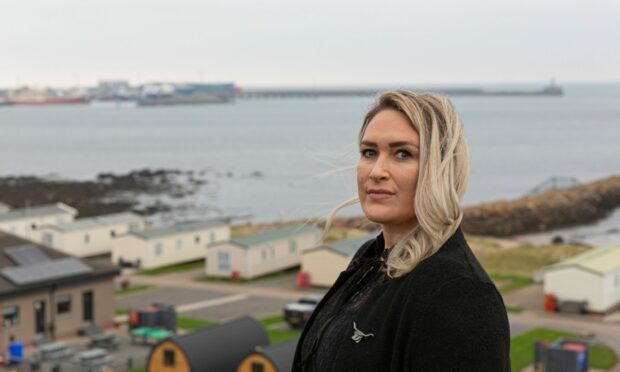An MSP who worked as a young police officer in the days after the Piper Alpha tragedy shared her experience of the “psychological trauma”, and the “stigma” of seeking help for mental health.
Audrey Nicoll described her personal memories of the disaster which claimed the lives of 167 men on July 6, 1988.
Now the MSP for Aberdeen South and North Kincardine, she was one of several politicians from the north-east to share their mental health experiences at Holyrood on Thursday.
The debate, led by Highlands and Islands MSP Emma Roddick, allowed MSPs to discuss mental health stigma in the workplace.
Nothing prepared me for what was to come and no one prepared me for what was to come in the days ahead.
– Audrey Nicoll
Aberdeenshire East MSP Gillian Martin publicly spoke about having depression and Karen Adam, MSP for Banffshire and Buchan Coast, shared she has a panic disorder.
‘I had to be brave’
Ms Nicoll told MSPs she was working as a “young officer looking forward to a long weekend off duty” when she learned of the “horror” of the disaster.
“A phone call followed to recall me to duty and within a couple of hours I was deployed, along with colleagues, to Aberdeen Airport to await the arrival of the first of the personnel lost in the explosion and who had been recovered in the early stages of the emergency response”, she told MSPs.
“And our duties took us into the environment where they had been taken to await their final journey back to their loved ones.
“I put on my oversize white paper suit, my disposable gloves, I was given a clipboard and I deployed into the area.
“I took a deep breath and the sense of dread and emotion was overwhelming but I had to be brave, I just had to be brave.
“Nothing prepared me for what was to come and no one prepared me for what was to come in the days ahead.
“I considered myself a strong, resilient woman.
“However, the psychological trauma for many, myself included, and the stigma associated with seeking help was profound but it was of its day.
“And I was lucky, I was able to access specialist support from an eminent psychiatrist whose pioneering work on post-traumatic stress disorder (PTSD) in police populations at that time was in its early stages.”
‘I suffer from depression’
Ms Martin told MSPs she has never publicly spoken about having a “mental health diagnosis” before.
“I think this might be a good time to say I’ve been an MSP for the last six years and I suffer from depression and no one has noticed”, she added.
She was followed by Ms Adam who told MSPs she suffers from a panic disorder as a result of PTSD.
The politician recounted her first speech in parliament last year when her legs gave way as a result of her condition.
She said stigma and discrimination can have a “devastating” impact on the lives of people with mental health problems.
Ms Adam also highlighted the “unique mental health problems” experienced by those in the farming and fishing industries.
She commended the work of the Scottish National Farmer’s Union and the SeaFit programme who work with members to provide mental wellbeing support.
And Ms Roddick shared the criticism she faced online during last year’s Holyrood election after sharing she has a personality disorder.
The MSP and her office manager have both received mental health training from the Scottish Association for Mental Health (SAMH).
This is due to be rolled out to the rest of the politician’s team.
‘Key priority for this government’
Minister for Mental Wellbeing Kevin Stewart praised politicians for a “thoughtful, personal and empathetic debate”.
He said: “Tackling stigma and discrimination around mental health remains a key priority for this government.”
The Scottish Government last year announced it was providing £5 million over five years to See Me.
This is a national programme to eliminate mental health stigma and discrimination, including in workplaces.
Earlier this year, the Scottish Government also launched a digital platform signposting a range of free mental wellbeing resources for employers of all sizes across a range of sectors.


